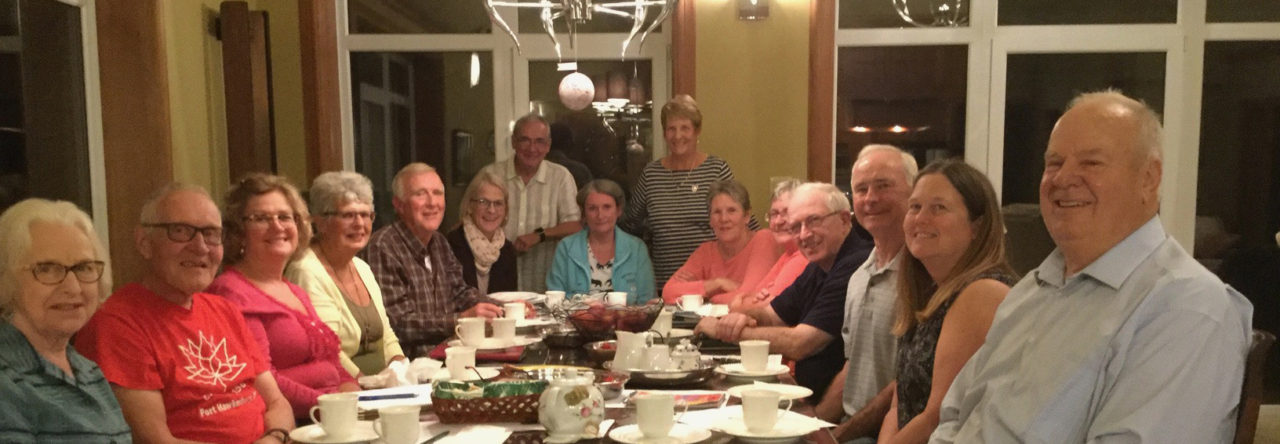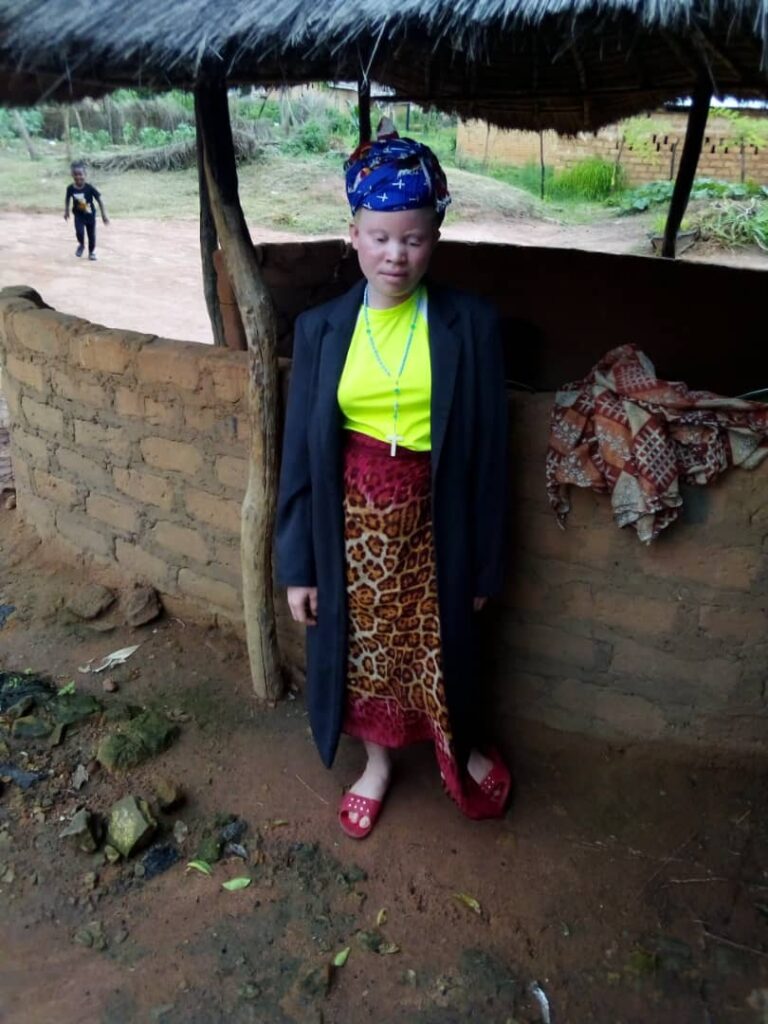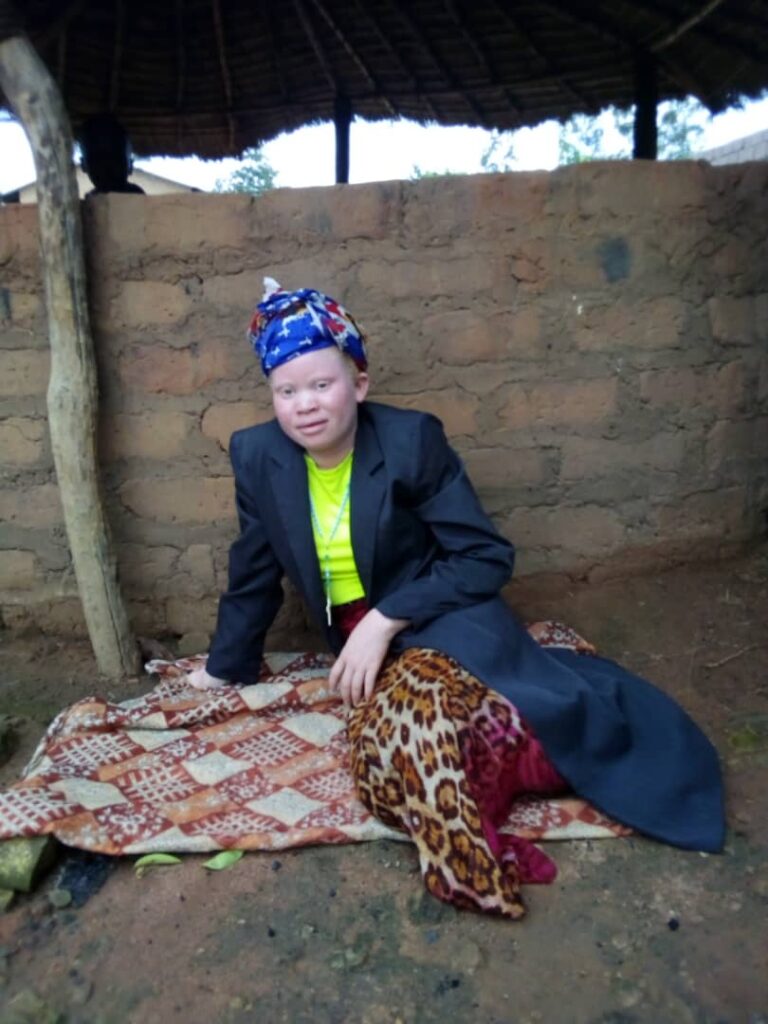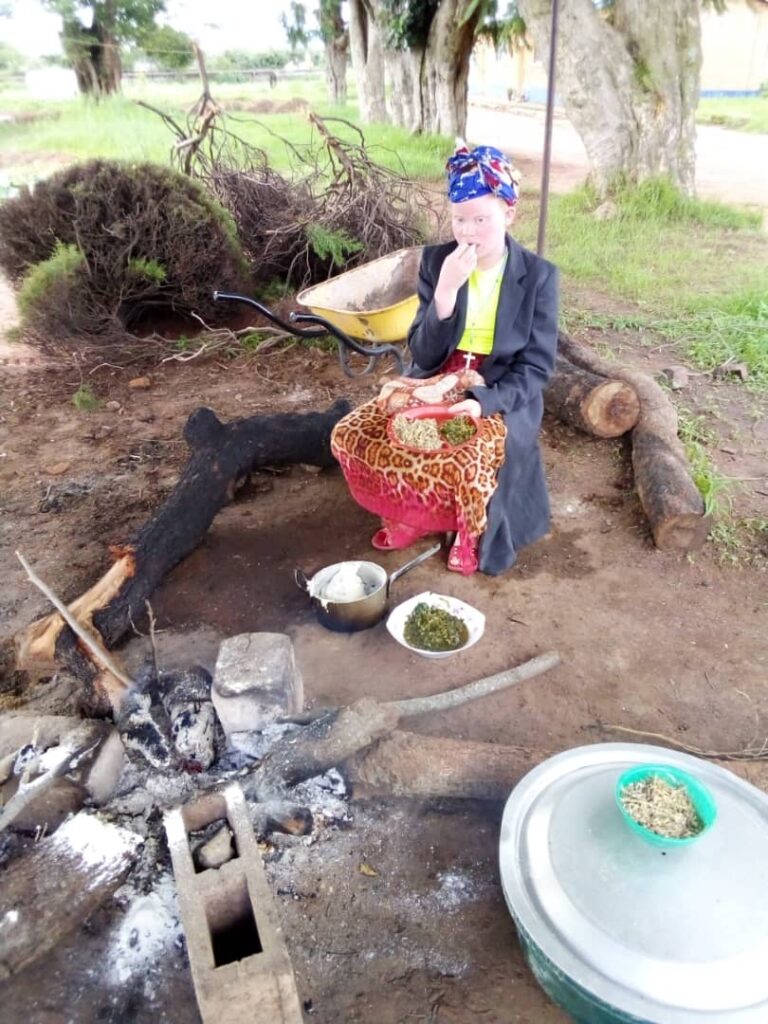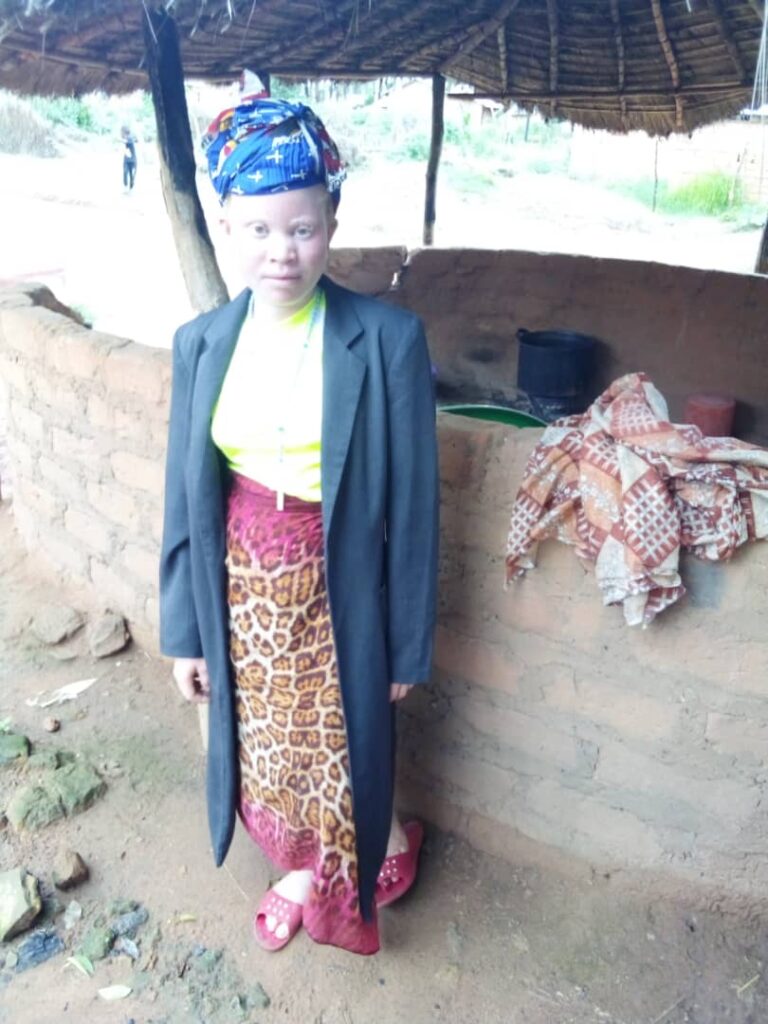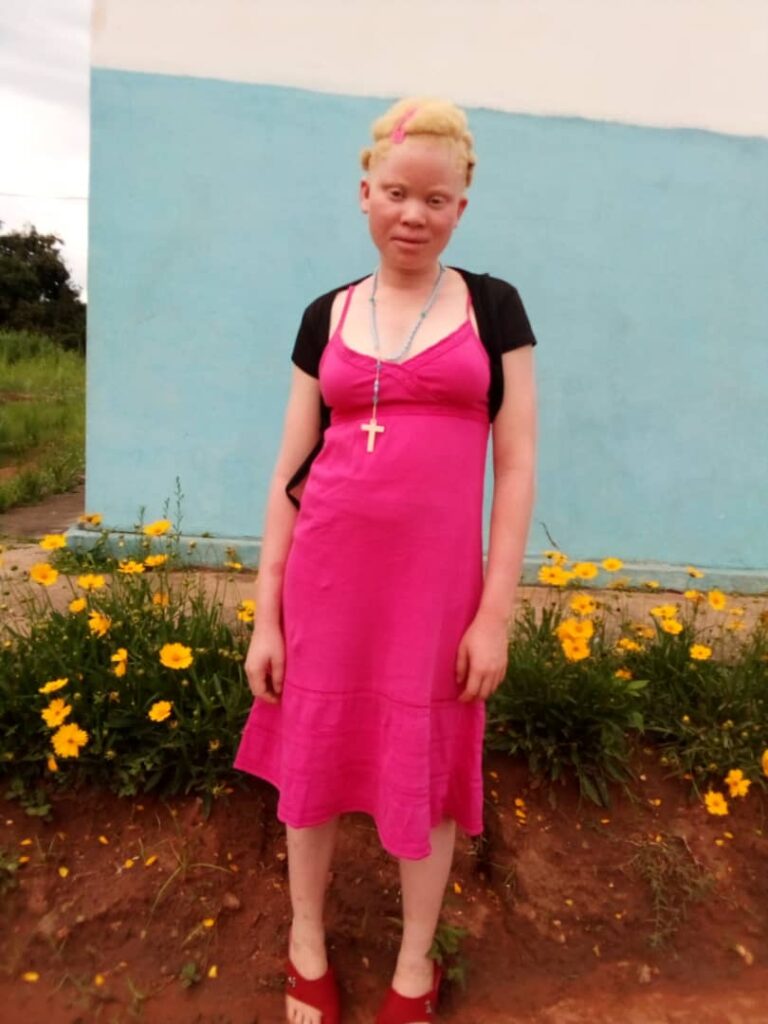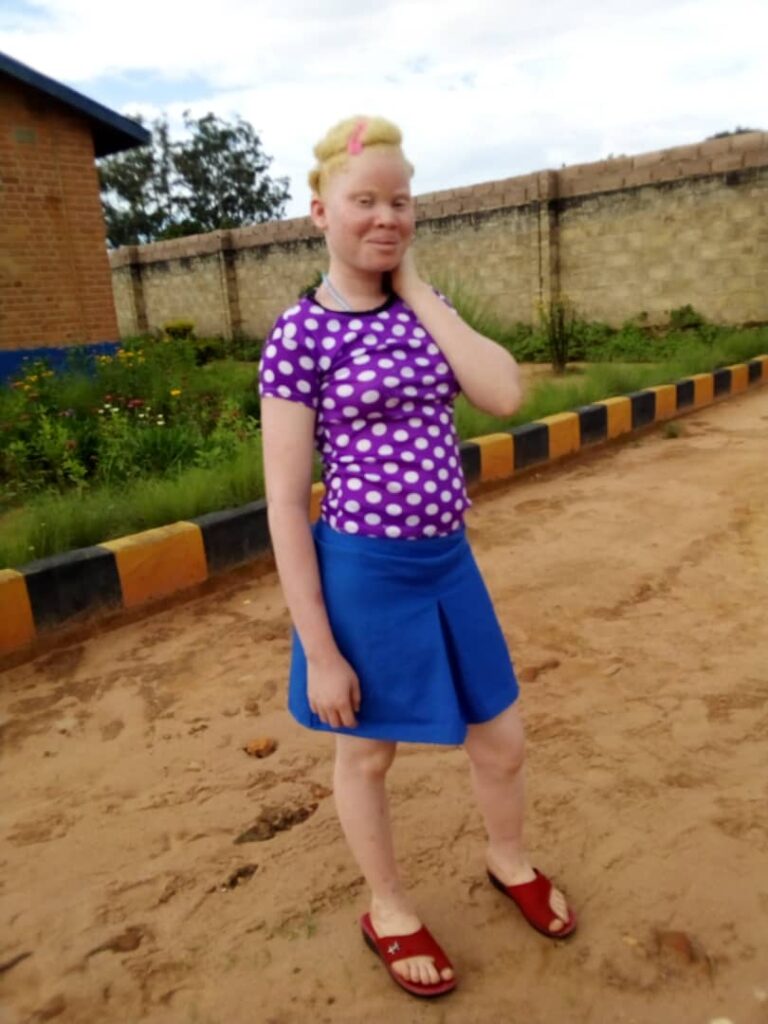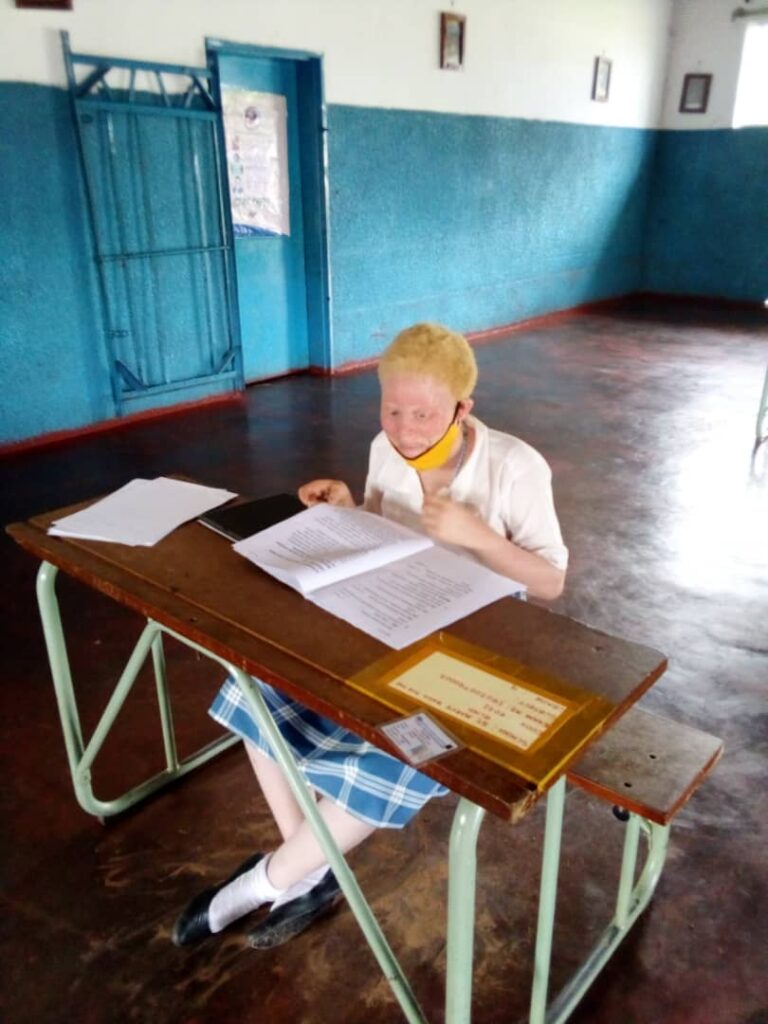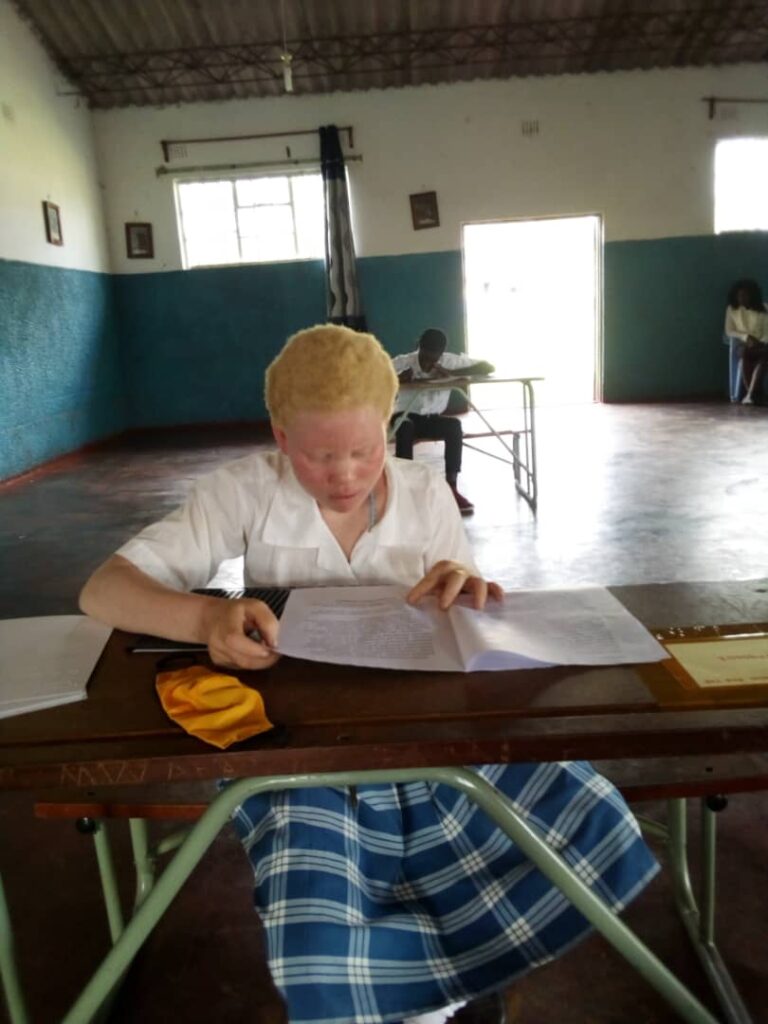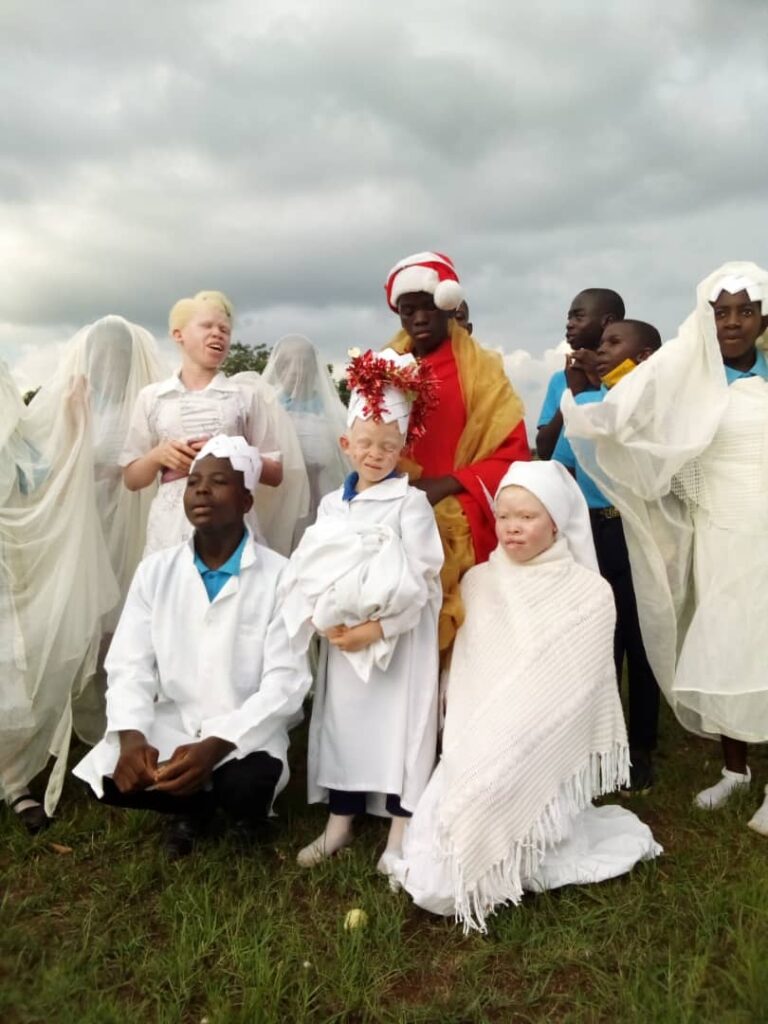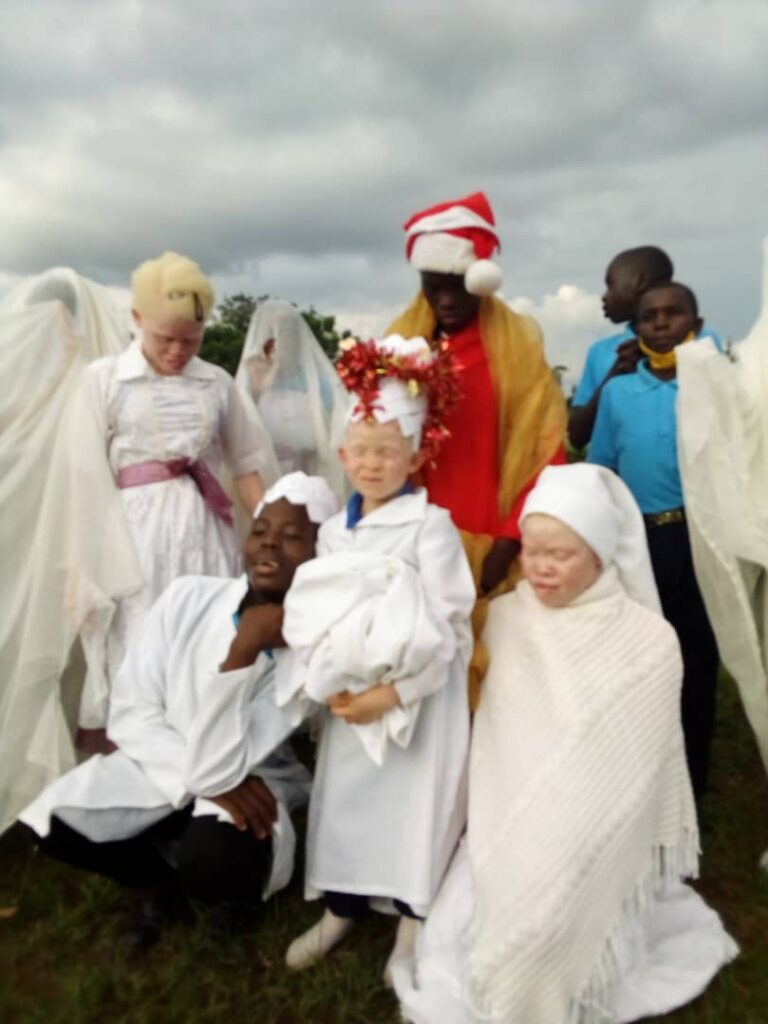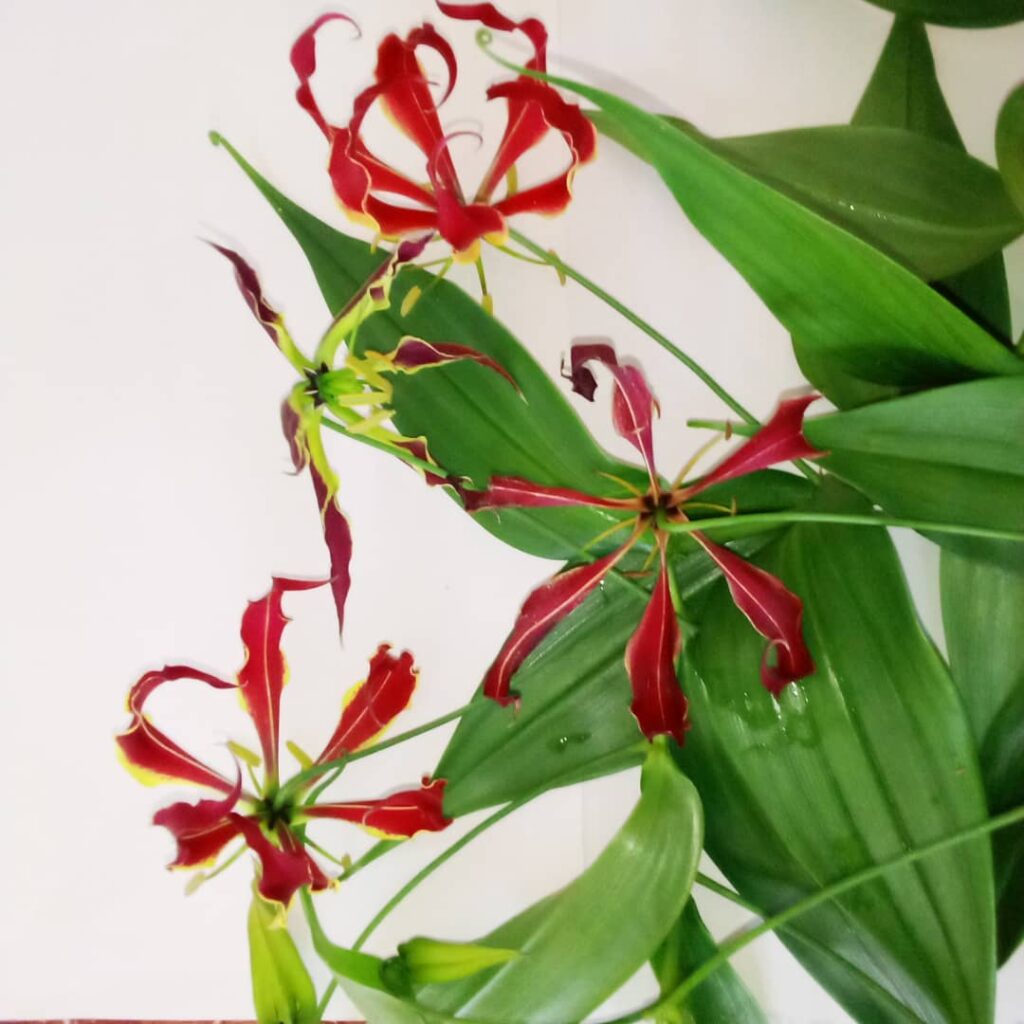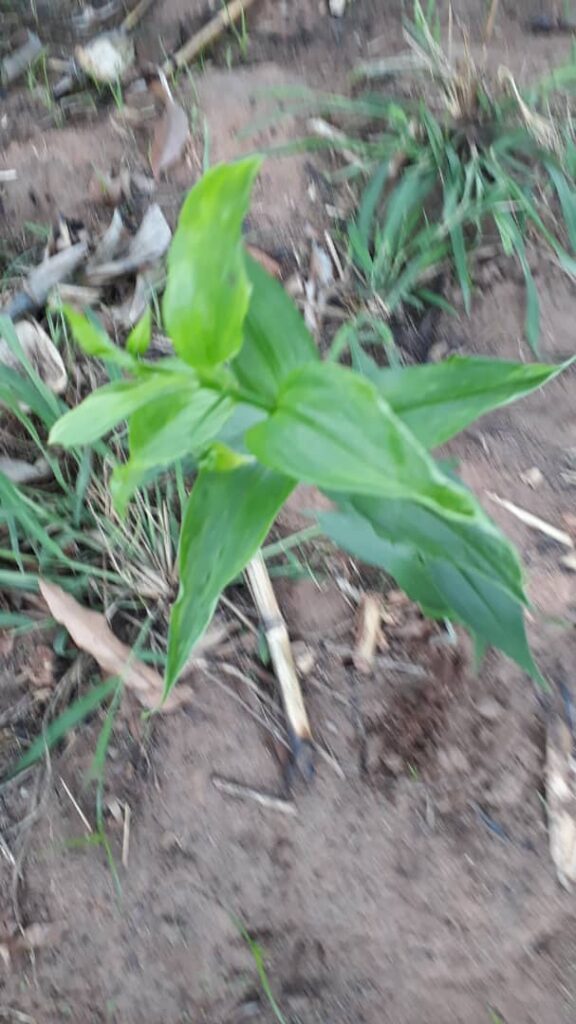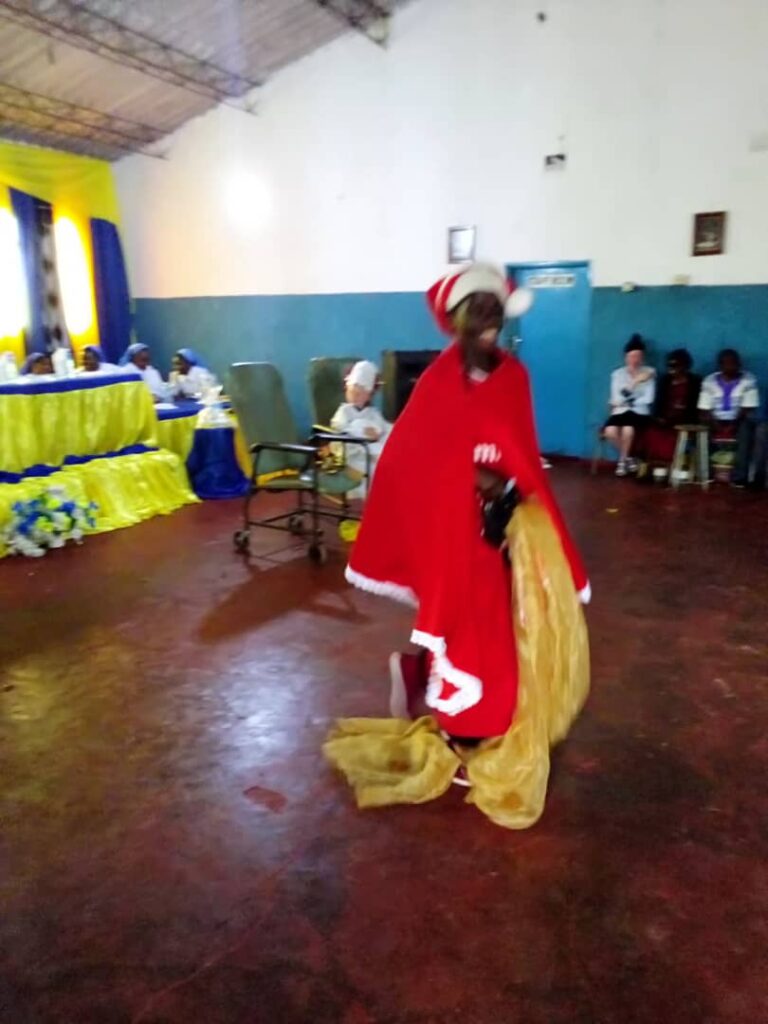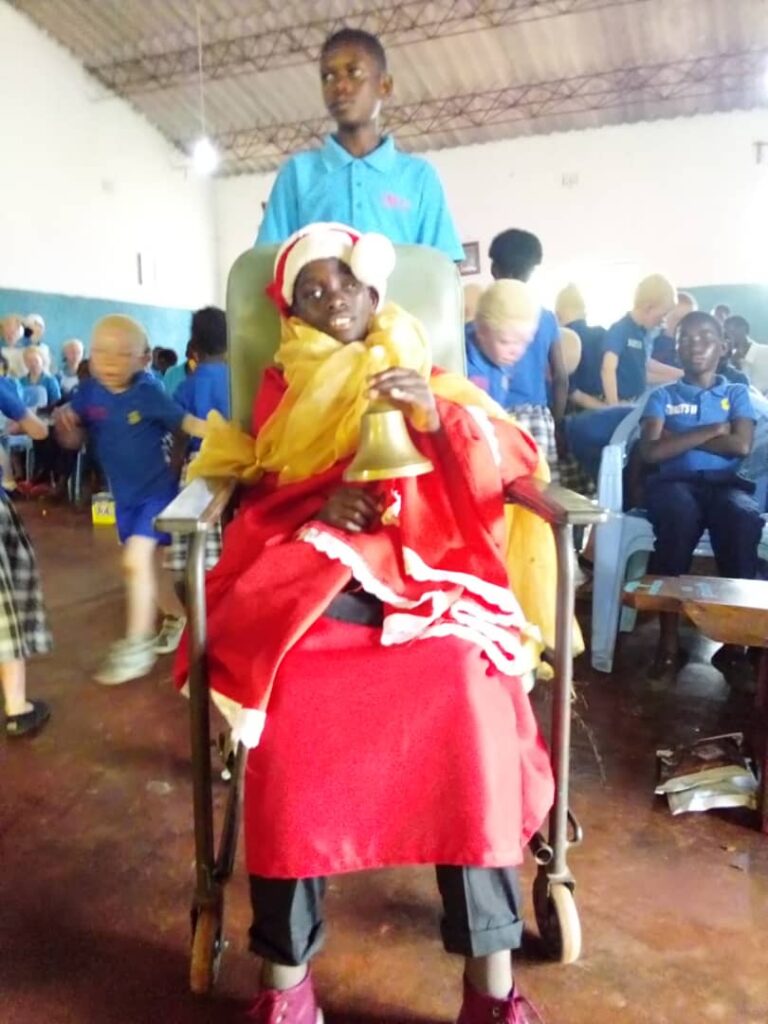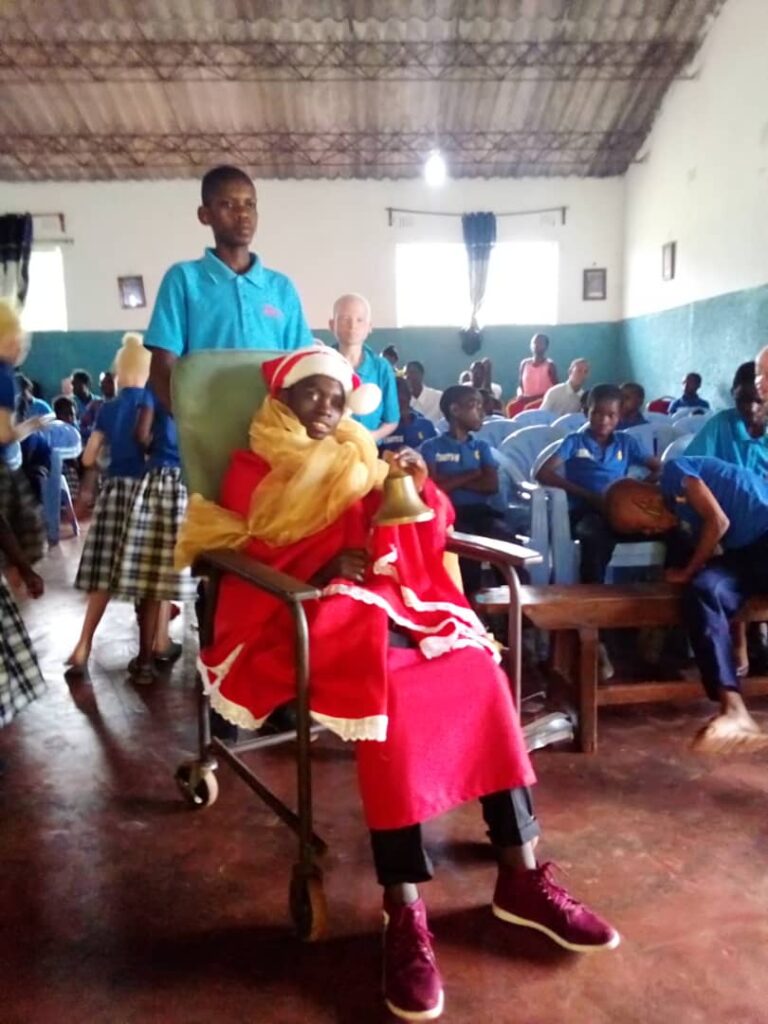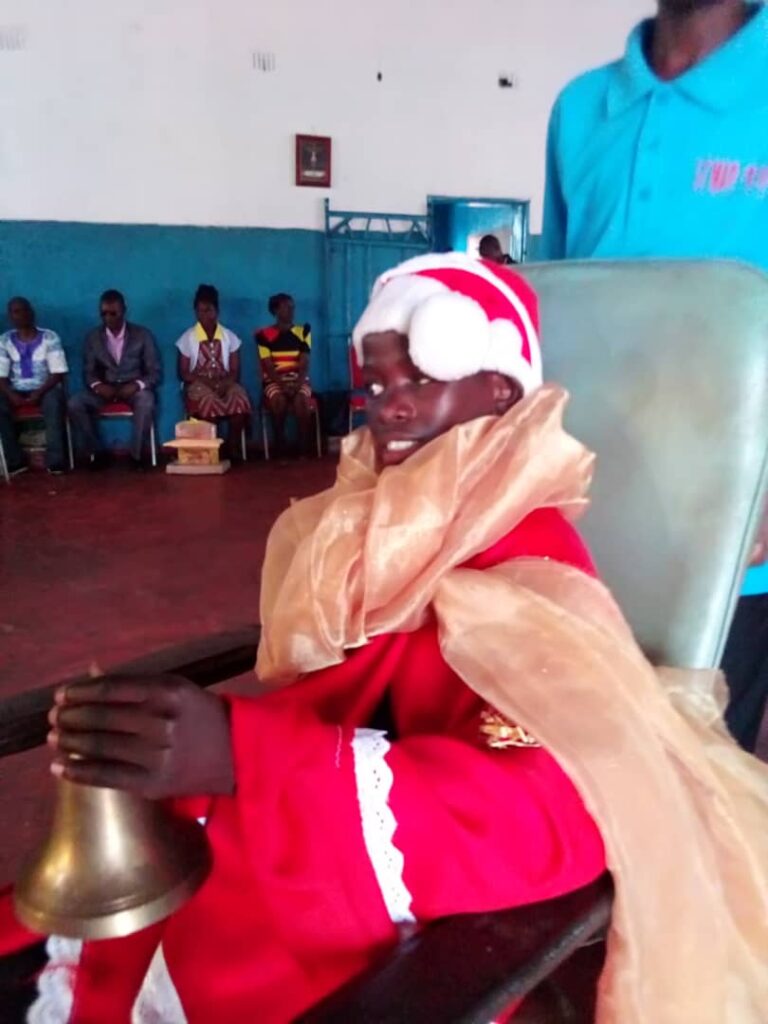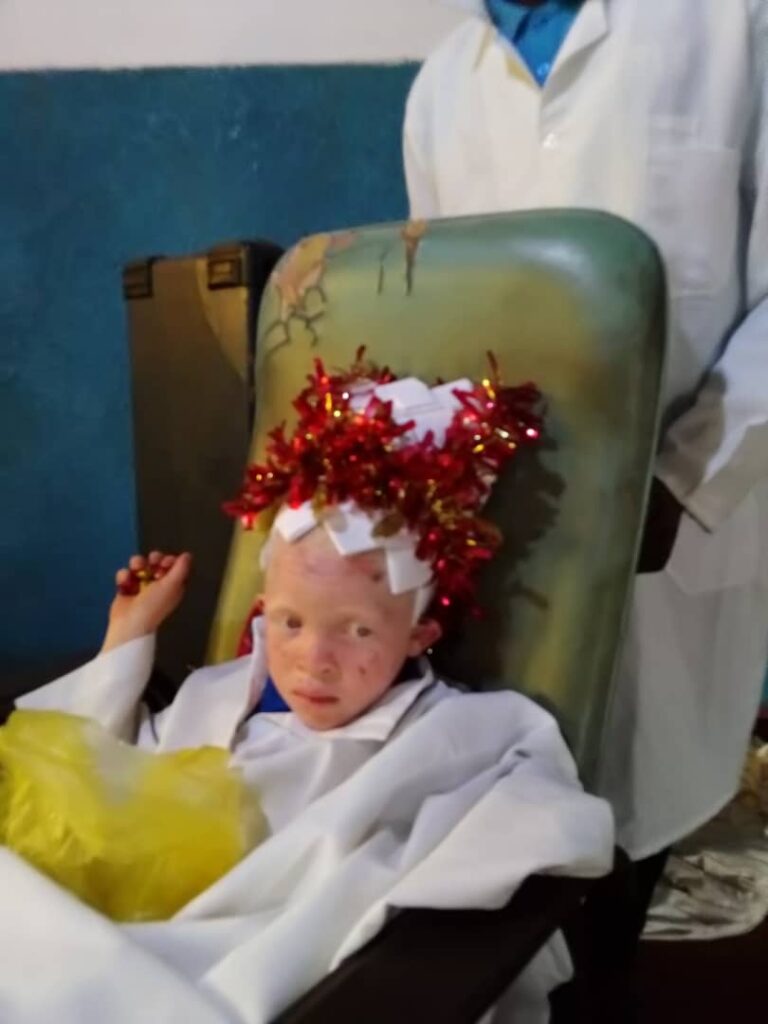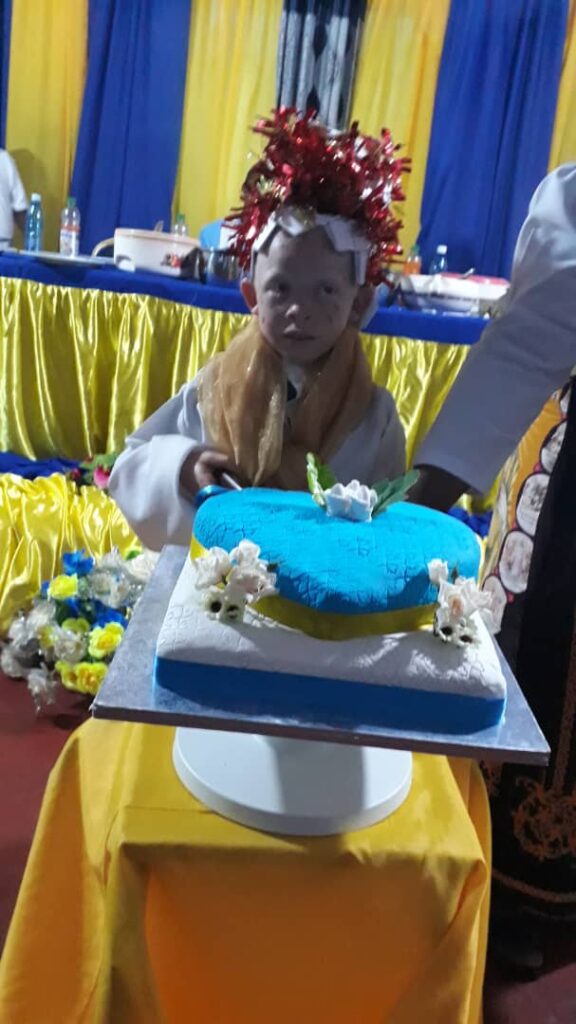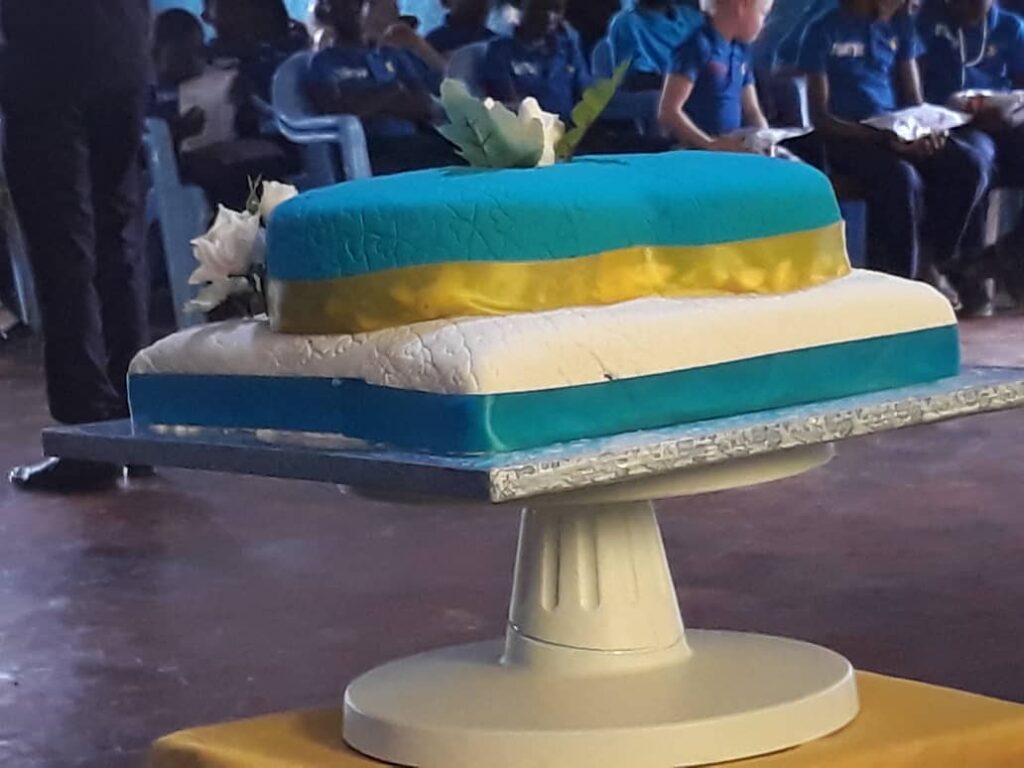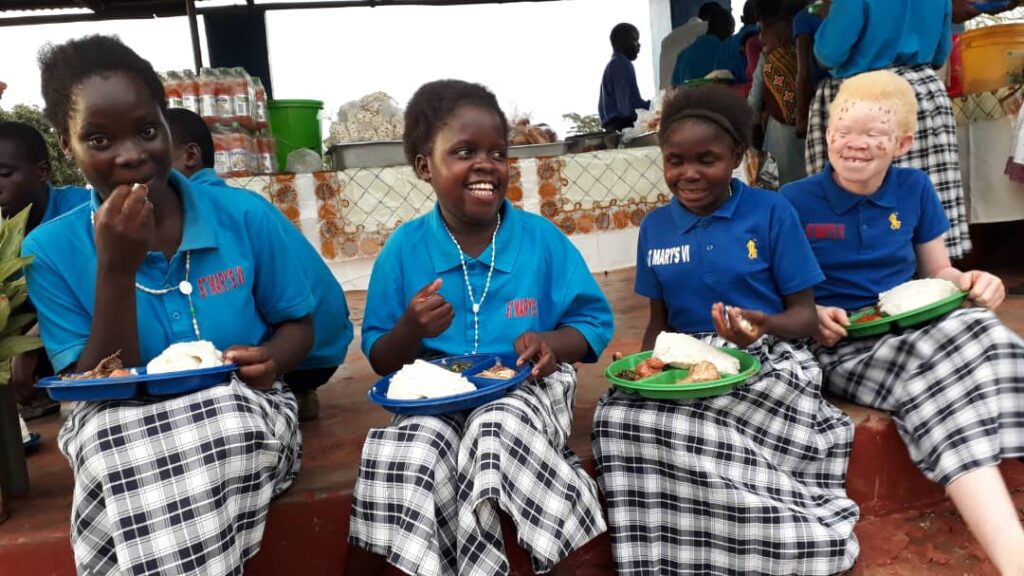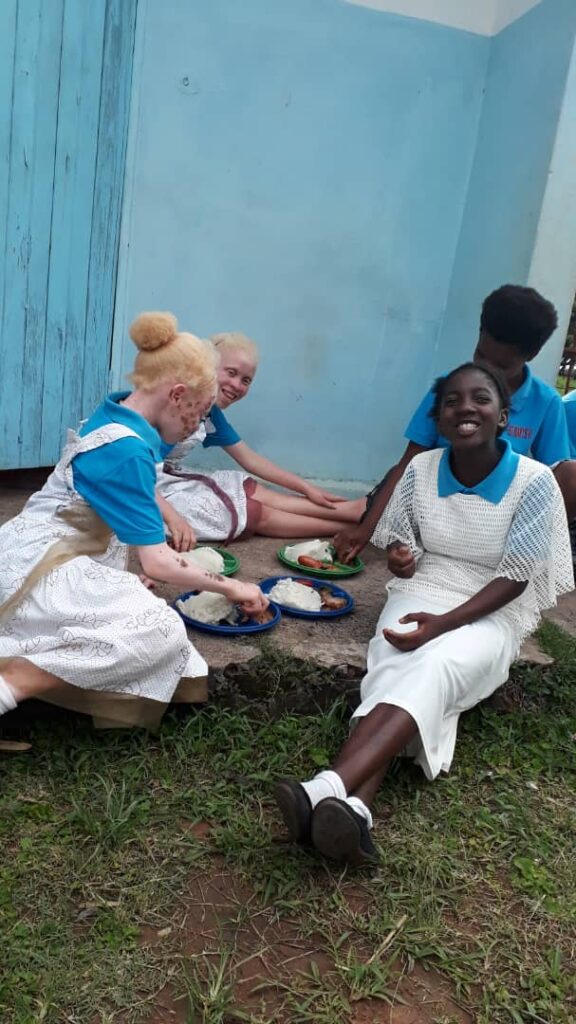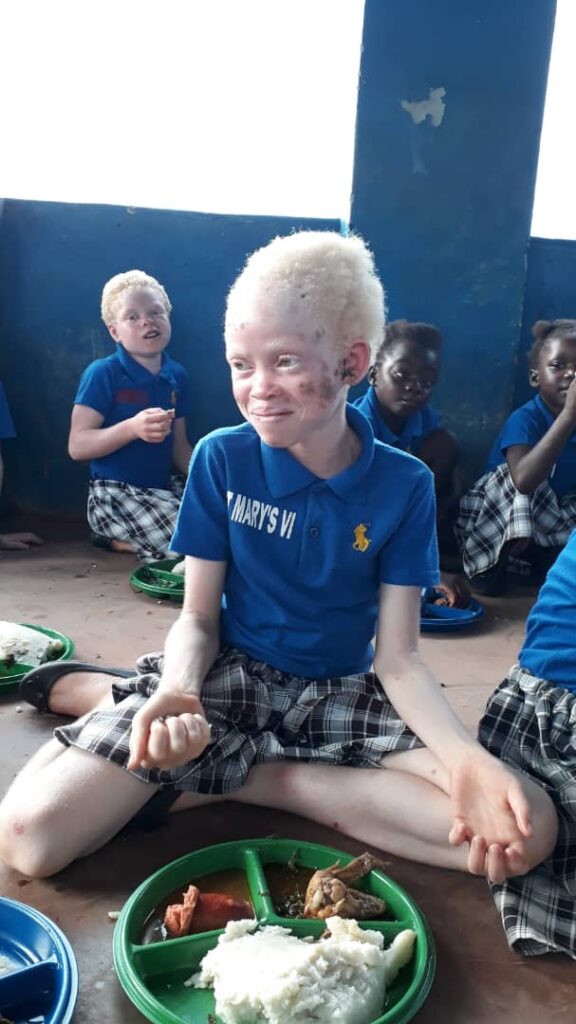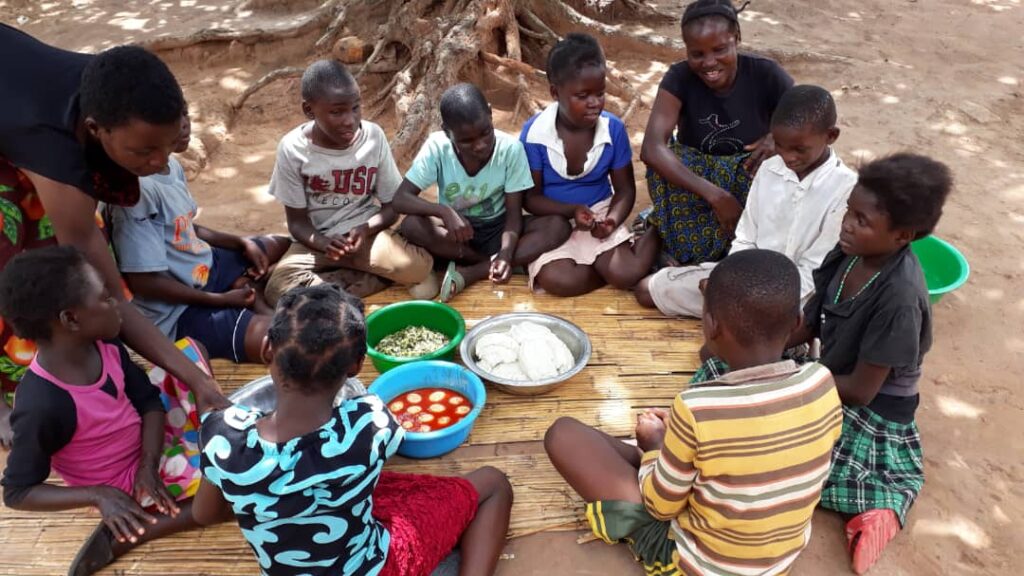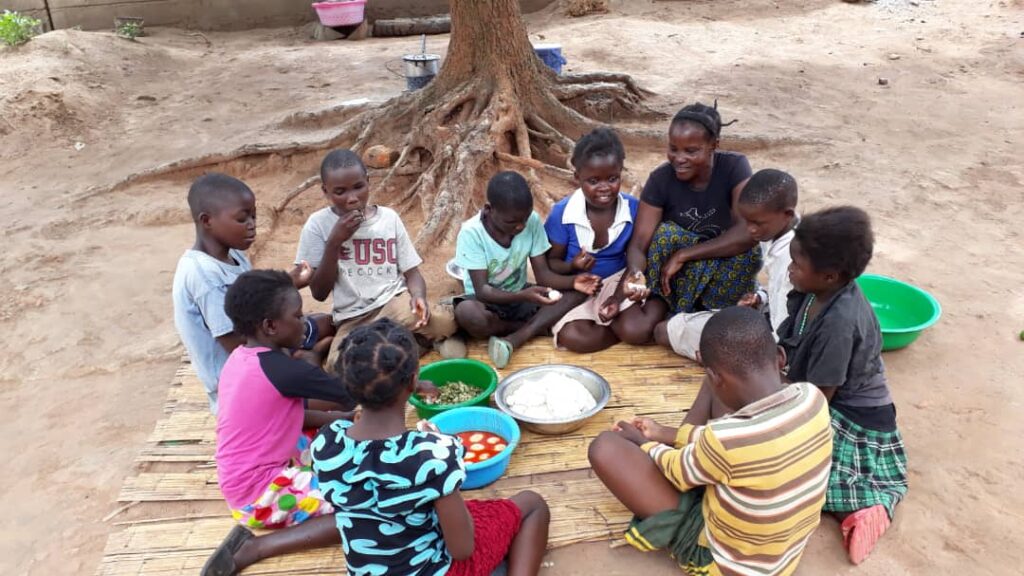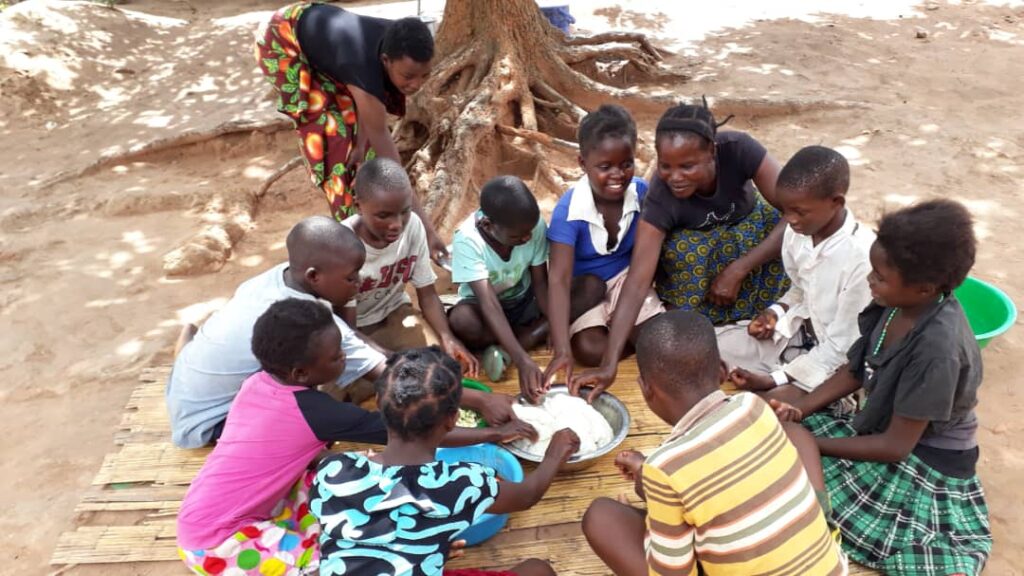Elizabeth an Albino Child, Tells her Story
By: Elizabeth Mulenga, Sr Agnes Bwalya and Mr. Telesphore
Albinism is a hereditary condition, resulting in the absence of melanin pigment causing an individual being born with the white skin, light hair and vision problems. There are two types of albinism. Oculocutaneous albinism involves the eyes, hair and skin and Ocular albinism which is less common involving only the eyes, while skin and hair may appear similar or slightly lighter than that of the other family members.
I am Elizabeth born from two parents with very light skin, (Ocular Albinism). We are seven in the family, 5 are black but with light skin and 2 (*John and myself) are Oculocutaneous, with very light skin and hair. My eyes are not stable the eyeballs move and sometimes even my head shakes involuntarily.
My family surname is Mulenga but now my nickname is my surname…”Manda”, in English it means grave, meaning my brother *John and I are already dead, in other words we are not human beings. People in society continued calling us this, at first secretly but as days went by, it became a famous surname.
When I was born my parents were separated but my father could visit my mother, however when my youngest brother was born, my father ran away and he told my mother that,” I will go now forever”. My mother was disturbed and she dumped us. My widowed grandmother from my father’s side came to our rescue, she took us and we stayed with her for some years, where the care was not up to date. When I was ten years old my grandmother died and we went back to our mother who couldn’t manage because she was sickly and she died when I was 13yrs old. I started staying with my aunty to my mother’s side.
People in the village where we were living didn’t accept us and we were considered as “Ghosts”, because only “Ghosts” are found in the grave. When we were passing, especially a pregnant woman she would spit saliva on her chest “pupuu”, which they believed prevented them from having an albino child, even elderly women and young girls did the same.
As an albino we can’t share plates with others, I should eat alone and my plate should not be mixed with other plates. My bedding (an old coat of my grandmother) was kept outside the house and it was a bad experience with no shelter in the rainy season. I was denied family socialization and no one will touch any object that I touched or eat the food or drink I have prepared, because they believed Albinism is contagious.
I will never forget this day: I went to the river to draw water, and as I was coming back a middle-aged woman called me and said “Elizabeth from today onwards do not pass here or touch my children because when you pass here, they dream of you and hallucinate at night”, I didn’t say anything, I cried the whole night, and said to my God, “God why create me as a Ghost! Why?” That was how I vowed not to visit any home in the village, I was living in isolation, I felt lonely, unloved, useless and unworthy to live.
When I entered the classroom in our village, the female teacher never accepted me, she never talked to me or give me any work. That time I had sores on my body and one day I heard her telling others that, she cannot stand the situation it’s better she teaches other classes, her negativity made me more passive and I decided to stop school.
One day the light shone, I was called by an old lady in the village and she asked me to help her wash plates, at the river side. She held me by the hand and whispered in my ears “Elizabeth, one day your problems will flow away like the waters in the river and they will never come back again. Look at this water as it flows it will never turn back and flow in a different direction, this is how life is, once you understand life, you will not be the same and the solution is education. This old woman made me feel loved, comforted, accepted and fully human.
A few days later, she decided to take me to St. Mary’s Special School (Sponsored by Chalice.ca) with the help of St Vincent de Paul Movement. When I reached school, I saw my friends wearing shoes, sleeping on beds, eating while sitting on a bench/chair, within myself I couldn’t believe it.
I was happy, in fact more than happy, especially when I saw other Albino children. To be sincere it is St. Mary’s Special School that introduced me to the wearing of shoes and sandals, I really felt uncomfortable, since eating while sitting on the chair was something I never thought of and many other traits that makes a human being feel human and comfortable.
Today I am so positive about my life, I am in grade 9 and just finished writing my junior secondary final examination. I promise the world that I will pass. * John has also found peace at the St Mary’s school and is in grade 3. I remain a good dancer, I live healthy with no sores on my body, I wear decent clothes, I have Braille and Braillo paper for my education.
An albino child is fully human, fully alive, we send thanks to you so many people.
Inverness County Cares always welcomes new members. Individuals who wish to donate, can use the donate button on our website https://invernesscountycares.com
Please include mailing address for CRA tax receipts and thank you, when using E-transfer. E-transfer address: [email protected]
or send a cheque to Inverness County Cares Box 99, Judique, NS, Canada, B0E1P0. Taxation receipts provided for USA and Canada.
